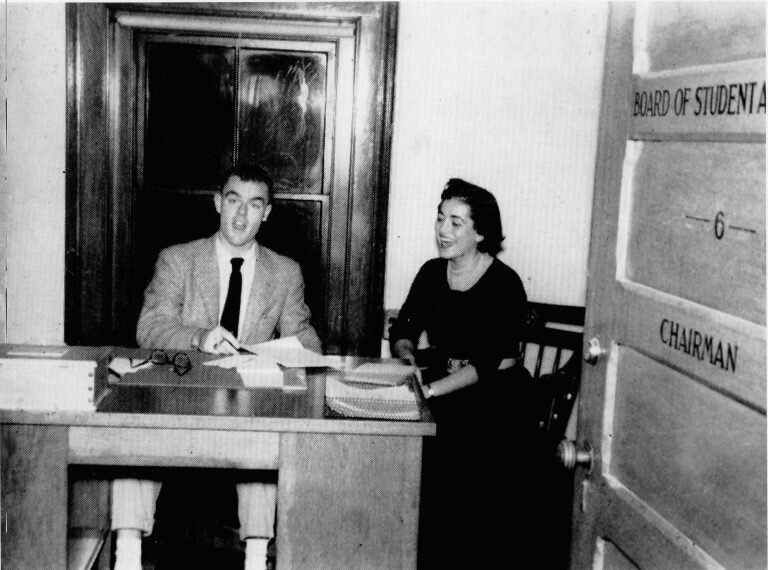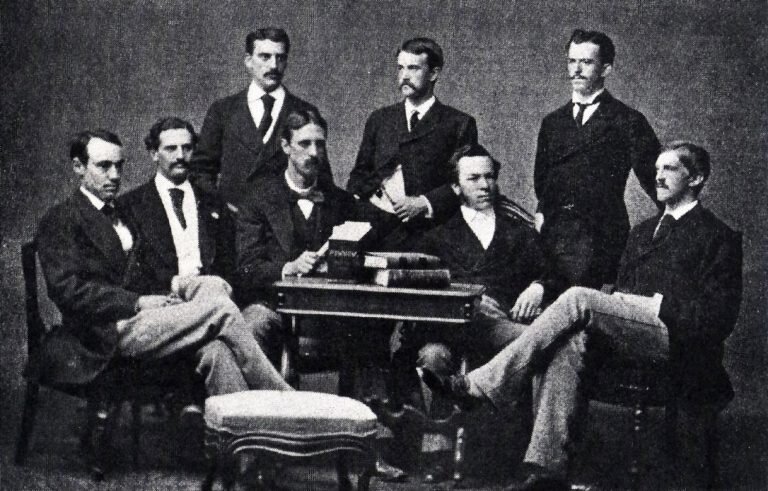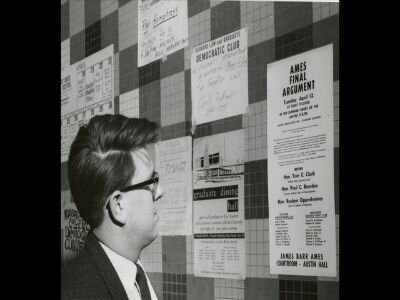Ames Moot Competition
“Are you super busy with school? Do you just like, study all the time?”
Well, yea…kinda.
I am super busy, but only half of my time is spent on school prep or in class. The other half is currently divided between my duties as AFA co-President* and a little thing called the Ames Moot Court Competition.
Full disclosure: I didn’t make it past the qualifying round of this thing and I’m STILL spending a ton of time on it. Keep reading to find out why!
*Last week’s Military Prospective Student Series (read about it here) was a huge success!! I met a ton of incredible vets & am excited to see how many join us at HLS in 2021.*
THE COMPETITION
“For more than 100 years, Harvard Law School’s Ames Moot Court Competition has been one of the most prestigious competitions for appellate brief writing and advocacy in the nation.”
The Harvard website isn’t kidding, this competition is a BIG deal. It’s been around since 1911 and is named after James Barr Ames, 1872 graduate and former Dean of HLS. The competition is conducted in teams of four law students (and in later rounds, six) and final prizes include Best Brief, Best Overall Team, and – for one student – Best Oralist.
So, real quick: a brief is a long memorandum, written by one side’s legal team and intended for the court, to basically explain why their side should win. It’s very long, often dense, and includes tons of legal references for the team to (a) support their own claim and (b) shoot down the other side’s argument. Oral arguments then happen after the court has read both side’s briefs. Lawyers from both sides will stand up, make a brief 2-min pitch about their argument, and then field questions from a panel of 3 judges.
There are several rounds of briefs and oral arguments during the Ames Competition; from the first qualifying round to final oral argument, it’s a two-year process. Contestants start as new 2Ls and complete their final argument not long before graduating 3L! The final oral argument (between two final teams of six students) is a HUGE thing, so the final three judges usually includes a Supreme Court Justice. As the HLS website truthfully discloses, “team members work around the clock as the date nears, researching the hypothetical case, preparing 50 pages of briefs, and practicing the oral argument.”
For reference, I did about a month of Ames and was ready to die so…kudos to the finalists.
Ames Oral Arguments 2013 - ft. our Queen!
MOOT COURT NEWBIES
Every year, right before fall semester kicks off, the Ames Committee (a panel of third-year law students) invites all rising 2Ls (second year students, AKA me) to participate in the Ames Competition. All interested 2Ls form teams of four students, who then register with the Committee and receive a packet including an appendix, rubric, rules, and schedule. The task sounds simple – as a team, you read an appendix containing the lower court’s “decision,” an explanation of what you’re appealing, and any relevant evidence. (The whole thing is based on a mock scenario, so the teams can only use the material given them to establish “background facts”). Then, acting as one side’s attorney, the team writes a 20-ish page brief telling the court why they should or should not overturn the lower court’s ruling.
The brief contains a cover page and several mandatory sections (Cover Page, Table of Contents, Table of Authorities, Questions Presented, Statement of Facts, Statement of Jurisdiction, Summary of Argument, Argument, and Conclusion - standard law school fare) and is due in the middle of October. So that’s about a month to internalize the lower court arguments, research the legal issues involved, use ‘good cases’ to craft an argument for your side while neutralizing ‘bad cases,’ draft up the argument, combine it with your teammates’ arguments, identify holes in your argument, re-draft, find more holes, re-draft, write the OTHER sections, and finally hit submit because you’re exhausted and hate everything about it.
Honestly, it would have been fine (fun, even?) if I weren’t simultaneously taking a full course load at Harvard Law School. Smh.
THE AMES JOINT CHIEFS (MY TEAM)
I’m on a DoD team – a West Point grad and fellow future JAG assumed the mantle of team captain, then recruited me, another Air Force vet, and an Army reservist to round out the gang. I initially committed to Ames for two reasons. First, Harvard 1Ls usually get to try their hand at oral arguments during their spring Legal Research & Writing class. You and a partner write an entire brief, and then go up against a team arguing the other side of the same case. Unfortunately for my class, COVID prevented us from participating in a 1L Ames Moot Court. Second, I did an oral sentencing argument at the end of my summer internship and it went well, but not amazing. I hoped the Ames Competition would be another chance to practice before my trial advocacy class this winter.
Luckily, the Joint Chiefs of Ames began the competition with NO delusions of grandeur. We hoped to make it past the first round of cuts, participate in oral arguments, and call it a day. But even if we didn’t qualify, we knew our work would not be in vain. We were likely to learn a ton about a new legal topic, and could use our initial brief and two follow-up briefs to fulfill a required writing credit.
And that’s exactly what happened! My team did tons of research, put in many hours crafting a brief, and ultimately didn’t get past the qualifying round. But we’re still working on the two response briefs to earn the writing credit, which are due next week (audible gulp). We won’t get graded but do have to show a “good faith effort” to get credit.
AKA, don’t submit complete garbage to the Ames Committee, please and thank you.
Overall, I’m glad I did it. A piece of me even wishes I had dedicated more time to that first brief, since Ames is a really cool opportunity and I would have loved to make it to oral arguments. But I also spent a truly enormous amount of time on my argument, and the burnout set in quickly…I don’t think I could have kept that up for two more years, especially over Zoom (virtual group projects really hit a new level of hell). Long story short – this bad boy is still eating up a ton of my time, but only via written briefs, and only for another week. And the world will have to wait until Jan 2021 to hear my oral arguments in Trial Advocacy!




